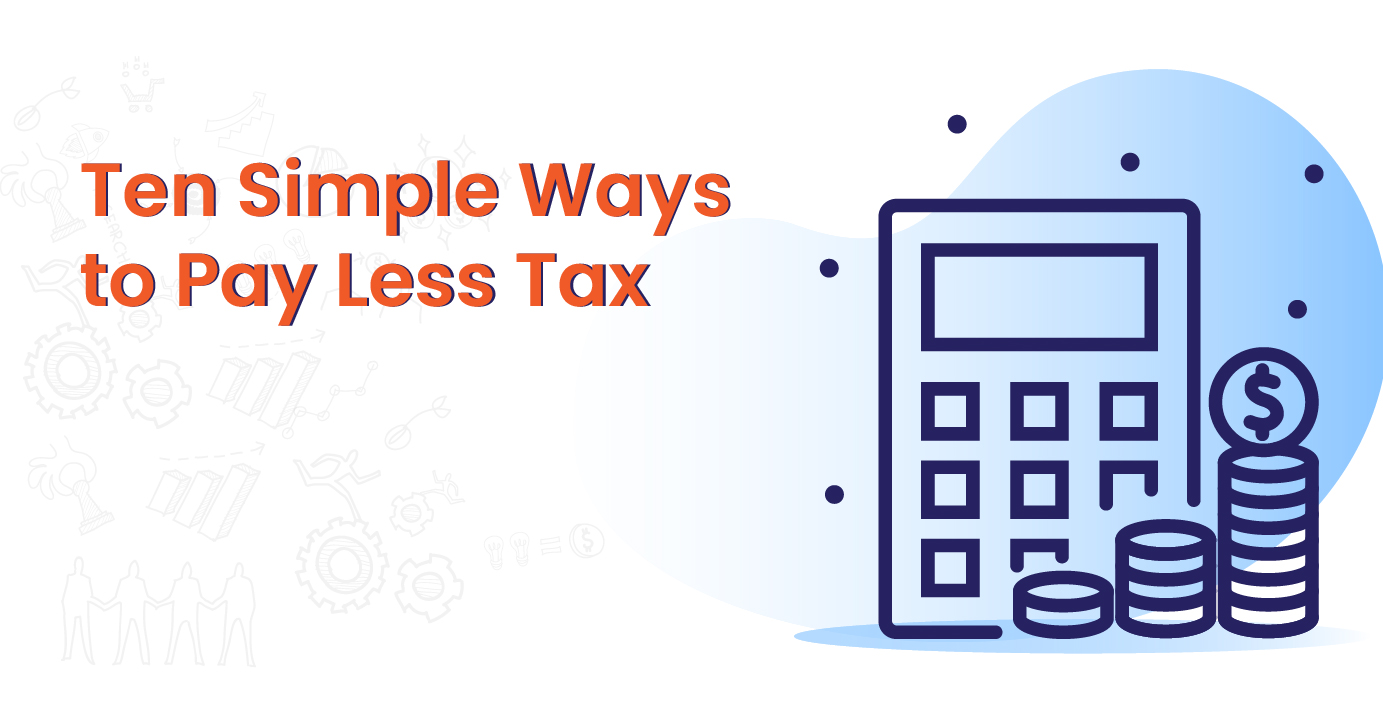
10 Simple Ways to Pay Less Tax
Nobody likes to pay taxes; that’s a fact! But it’s a compulsion, and there is no way around it. Or so a lot of taxpayers think! If you are an Aussie taxpayer, there are windows of opportunity provided by ATO to help reduce your tax. As a leading accounting firm, a lot of individuals approach us with one common question: “How do we pay less tax?” So, we decided to come up with a detailed blog that can guide taxpayers in reducing their tax obligations.
So, without wasting much time, let’s dive straight in.
Salary Sacrifice into Superannuation
This is the first and foremost way to reduce your taxable income. When you contribute your pre-tax salary to your superannuation, your taxable income drops significantly. The funds go into your super before tax is applied. Result? You pay less tax as your income comes down, and you boost your retirement savings, too! The Australian Taxation Office (ATO) allows contributions up to a cap of $27,500 per year at a concessional tax rate of 15%. This is much lower than most personal tax rates. But you will have to make sure you are contributing below the cap to pay less tax.
Claim Work-Related Deductions
Another way to bring down your tax is to claim out-of-pocket work-related expenses. For e.g., if you are spending up to $300 to buy your office-related expenses, you can claim that expense directly. You won’t need any receipt to claim that expense. But if you are spending more, you will have to present the receipts of those expenses to claim work-related deductions. Let’s say you are buying a laptop worth $1,200; you can claim that amount entirely, but only if you have receipts to back your claim! Moreover, you can claim half of your yearly phone bill if you are using it for work purposes. In short, you can pay less tax by claiming your work-related expenses. Just make sure you are keeping all the necessary receipts with you.
Investment Property Deductions
If you own a rental property, you will have multiple options to bring down your taxable income and pay less tax. For example, if your annual mortgage interest expenses are $15,000, you are paying $2,000 as property management fees, and you have spent $3,000 on repairs, it can deduct $20,000 from your taxable income. Result? You will have to pay less tax. Additionally, you can also claim the depreciation on the home appliances worth $5,000. Make sure the appliance has been purchased recently. Remember, Depreciation deductions help you claim a lot of tax deductions over time. This can help you reduce your taxable income and pay less tax.
Claim Home Office Expenses
If you are working from home, you get some extra perks! You can claim home office expenses, so you have to pay less tax! The ATO offers a rate of 67 cents per hour for home office expenses. This covers the cost of utilities and cleaning. It also covers the depreciation of office furniture. So by this calculation, if you are working from home 20 hours a week, you get $53.6 per month. On top of this, you can also claim the direct necessary costs such as a $2,000 computer. If the computer is solely for work use, you can claim the total cost. But again, for items over $300, the deduction is spread over the item’s useful life.
Keep Track of Capital Gains and Losses
If you have bought some assets and are selling them for profit, you will have to pay Capital Gain Tax or CGT. But there’s a catch! If you are booking losses in some assets in the same financial year, you can set off those losses against the capital gain. How does this benefit you? Well, you can time the sale of your loss-making asset and minimize your CGT. But for that, you will have to micro-manage your asset buying and selling. Even better, take the help of experts like Nanak Accounting. These experts can help you manage your assets properly and ensure you pay less tax. It’s important to remember that you can get up to 50% discounts on the assets you have held for the long term.
Make Charitable Donations
Donations to registered charities are always a good deed. And it gets even better! If you are donating $2 or more to such charities, you can claim tax deductions on these charities. In short, making a charitable donation is a win-win situation for both charities and the donors. But to claim this donation, you will need to get a receipt from the charities. More importantly, only donate to the charity that’s registered as a Deductible Gift Recipient (DGR) with the ATO.
Use the Government’s Super Co-contribution Scheme
For low or middle-income earners, making after-tax contributions to your super can attract a government co-contribution. If you earn less than $56,112 and make personal super contributions, the government may contribute up to $500 extra to your super. This is an effective way to increase your retirement savings and reduce overall taxable income.
Pre-pay Expenses
Pre-paying interest on an investment loan or insurance premiums for the year ahead can allow you to claim deductions in the current financial year. This strategy can be particularly effective if you expect your income to be lower in the next year, smoothing out your taxable income and potentially placing you in a lower tax bracket.
Split your Income
If one of your family members falls into the lower-income group, you can split your income with them. You can do so by investing in their name or setting up a family trust. By doing so, you can lower your own taxable income, your family member can claim their own tax benefits, and you will have to pay less tax. But it’s critical to take a professional’s advice from experts to ensure you stay compliant with the existing laws.
Manage Tax Offsets and Rebates
You may be eligible for low-income tax offset or seniors and pensioners tax offset. If you are eligible for such offsets, your taxes will will drop down drastically and you will have to pay less tax. Remember, these offsets do not reduce your taxable income. Instead, you can use them to directly decrease your tax payable. Result? You can benefit a lot and have more money in your pocket.
Wrapping Up
There are various ways to reduce your taxable income and pay less tax. But to be honest, these things are quite complex. If you miscalculate even a single step, you might end up either paying more tax or you might have to face the irk of ATO! So it’s always better to consult an expert to ensure 100% compliance and best tax savings. For any further information, feel free to talk to us.
Disclaimer
The information on this website is for general informational purposes only and should not be considered financial, taxation, or legal advice. While we strive for accuracy, Nanak Accountants does not guarantee the completeness or reliability of the content. Laws and regulations change over time, and we recommend consulting a qualified professional before making any financial or business decisions. Nanak Accountants is not liable for any loss or consequences arising from reliance on this information. For personalised advice, please contact Nanak Accountants directly.

